These Are Some of the Faces of a Middle East Refugee Crisis You Didn't Know About
Thousands of Iraqi Christians who fled ISIS found a new home in Slovakia.
— -- Qaraqosh, Iraq, was turned into a war zone in August 2014 when ISIS fired mortars at the northern city.
Tens of thousands of people fled their homes with just their families and their most prized possessions and headed to Erbil, Iraq.
Erbil, the capital of the semi-autonomous region of Kurdistan, is just 20 miles from ISIS territory and one of the oldest cities on Earth.
Here, about 560 Christian refugees from Qaraqosh ended up in the courtyard of the Mar Elia Chaldean Catholic Church. While Erbil is a predominantly Muslim city, Christians have called the Erbil district of Ankawa home for over 1,000 years.
Though they live in small containers called "caravans" with only space heaters to keep them warm and share a handful of communal bathrooms, the refugees had found a haven at Mar Elia for the past 15 months away from the horror in Qaraqosh.
Those who stayed behind in Qaraqosh were left under the control of ISIS. ISIS desecrated churches, separated men from the women and marked houses of Christians with the letter Nun -- a symbol used by ISIS in Iraq to brand the property of Christians.
But the refugees can't stay in Erbil forever, where they fear there is no future for them.
Glenn Beck's charity, Mercury One’s Nazarene Fund, raised more than $12 million for the evacuation and resettlement efforts of the refugees. Contracted by the Hudson Institute's Center for Religious Freedom, former U.S. counter-terrorism officers Joseph and Michele Assad have spent the past four months forging a close partnership with Father Douglas Bazi at Mar Elia. The Assads were managing the risky plan of getting the refugees out of Iraq and finding a country that would grant them asylum so they can start their lives over.
Slovakia, a predominantly Catholic country, agreed to open its doors to at least 25 Iraqi Christian refugee families -- 149 people in total -- on the condition that no terrorists would pass through the Assads' security check.
ABC News' "20/20" was there when the first 149 refugees left Erbil for their new home in Slovakia.
Here are some of the Iraqi Christians ABC News' "20/20" met in Erbil. They expressed some of their hopes, fears and how they felt about their new home in Slovakia.
Father Douglas Al-Bazi
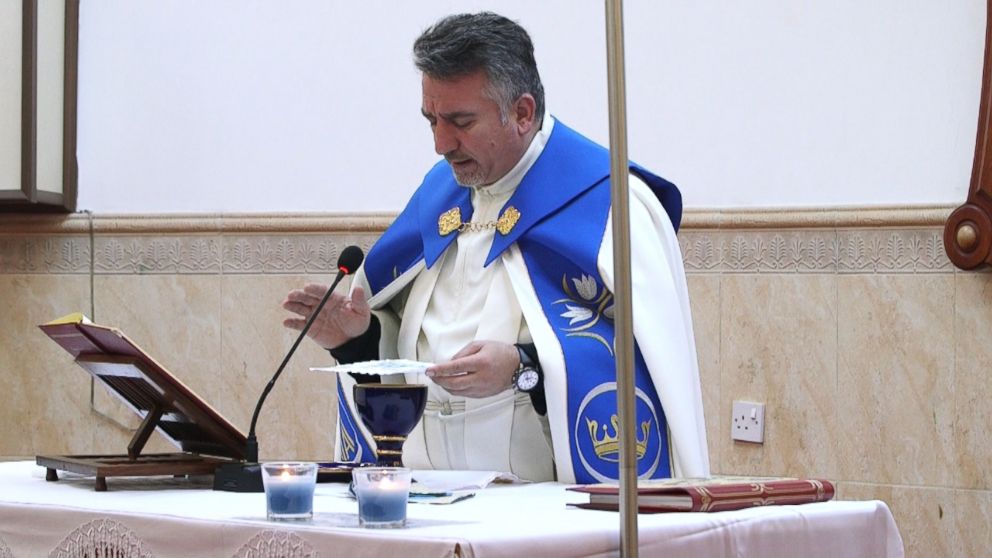
"My people -- no one actually blames God for what happened." –- Father Douglas Al-Bazi
For years, Father Douglas Al-Bazi has read the gospel at his church, Mar Elia Chaldaen. The 560 Christian refugees living in the church's courtyard have become part of his extended family.
Al-Bazi himself became a target of Islamic extremists. In 2006, he said he was kidnapped in Baghdad, Iraq, and tortured for nine days. He said they broke his teeth, his nose and his back with a hammer.
Determined to help the refugees, Al-Bazi built a trauma center and a kindergarten in Erbil. Today, they even have a computer room.
"From the first week, we start teaching kids, because we believe in education," Al-Bazi told "20/20."
Al-Bazi worked with husband-and-wife team Michele and Joseph Assad to find a new home for the refugees in Slovakia.
"I feel my soul is two parts. One part is [I'd] like my people to stay and another part [is] actually thinking to save my people. When I saw the tears of my people, they are glad because they are leaving the situation, a genocide, a persecution what's going on in that country. But in the same time, they are saying goodbye to the community," Al-Bazi said.
Majida Habeeb Gorgees
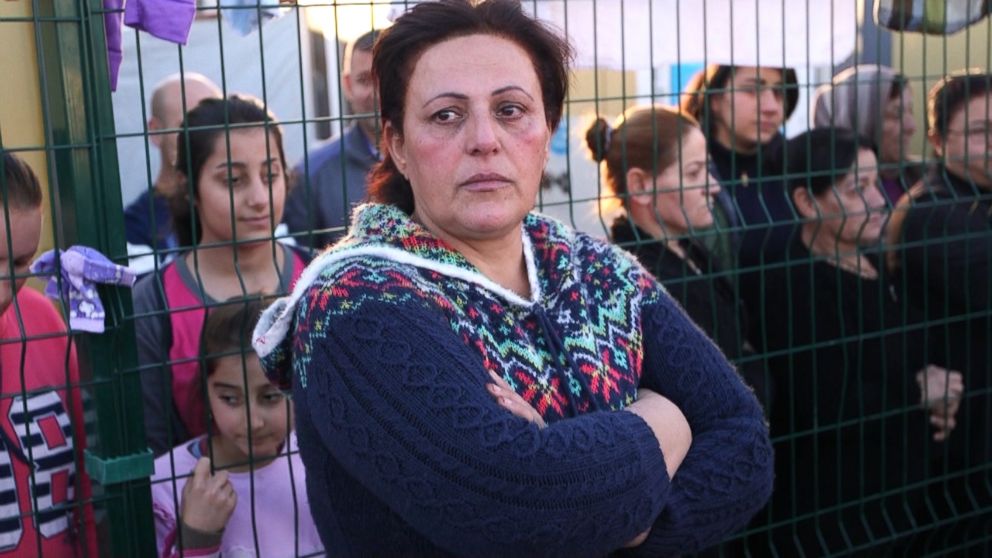
"This is hard, the one thing that we cannot bear. It's hard for me because I think of what's going to happen when I go." –- Majida Habeeb Gorgees
Majida Habeeb Gorgees, the cook for the refugee center in Erbil, has five daughters and one son.
One of Gorgees' daughters, Valantina, worked as a nurse before they fled Qaraqosh.
To raise extra money, Gorgees also did laundry for people in Erbil. Her husband ran a small vending stall near the church.
Gorgees took Slovakian language classes with her neighbor Nissan Butrus. She expressed her worry about leaving Erbil for Slovakia.
"I think of them, what they're going to do, what I'm going to do over there. I don't know. I don't know," Gorgees told "20/20" through a translator.
Nissan Butrus
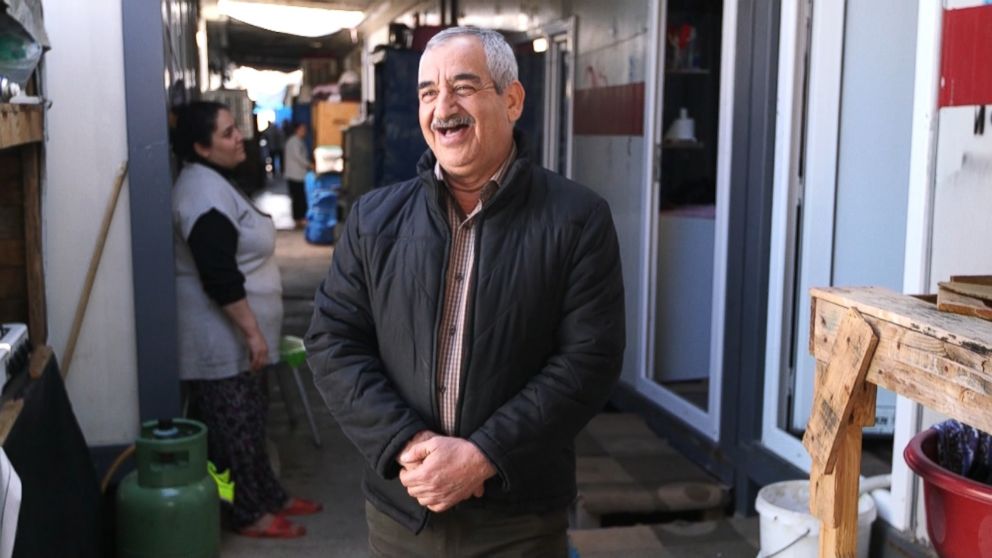
"Few of the people in Slovakia said all people in Iraq is ISIS. They did not meet [us]. When they meet [us], it is wrong. They love [us] after that because [we] are simple peoples." –- Nissan Butrus
Nissan Butrus is a retired pharmacist who fled Qaraqosh with his family of 10 packed in the back of a truck. He captured the chaos of the night on video.
"They knocked down … the cross … from our church. They put the flag of ISIS over the church," Butrus told "20/20."
Butrus said he and his family walked about eight kilometers while he carried ice, oils, medicine and other items. But when he reached the checkpoint, he took only his medicine so he could help people.
"When I reach the checkpoint, I leave oils, rices and clothes. I cannot able to carry. I carry one bag of drugs: only to helps the people there when I reach this place," Butrus said.
Butrus took classes in the Slovakian language in Erbil and left for Slovakia with his family, including his grandchildren. Though he knows there are those in Slovakia who don't want him there, Butrus is confident he can change their minds.
Lilian Saqat
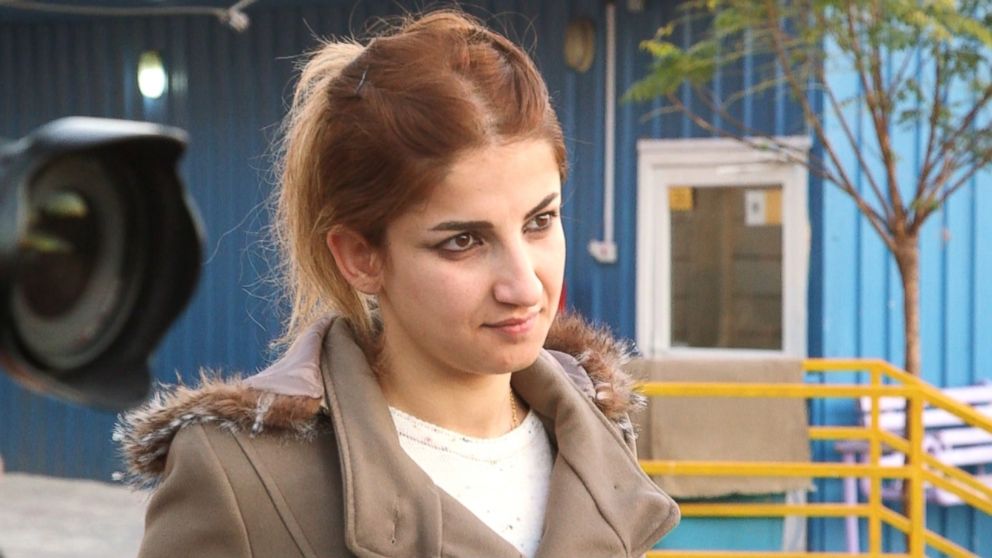
"I think life continues. And we have to build our life again." –- Lilian Saqat
Lilian Saqat is a 24-year-old English teacher. She recalled the confusion she experienced when she left Qaraqosh and headed to Erbil.
"When they began bombing, two children and a woman died. Within hours, 50,000 people fled the town in chaos and panic for Erbil. The roads … choked with people and dust," Saqat told "20/20."
Saqat said she and others eventually left their cars and started walking. She said there was shooting in the air and everyone was afraid.
"I don't want to remember that," Saqat said. "Actually, we have very good memories about our past in Qaraqosh, so I want to remember the happy things that happened, not those bad days."
Saqat recently got married in Erbil. She met her husband, who is also from Qaraqosh, at the camp in Erbil. The wedding was followed by a joyous circle of traditional music and dance.
Though she didn’t leave on the first trip, Saqat hopes to go to Slovakia soon.
Ranya and Rita Khaleel Majeed
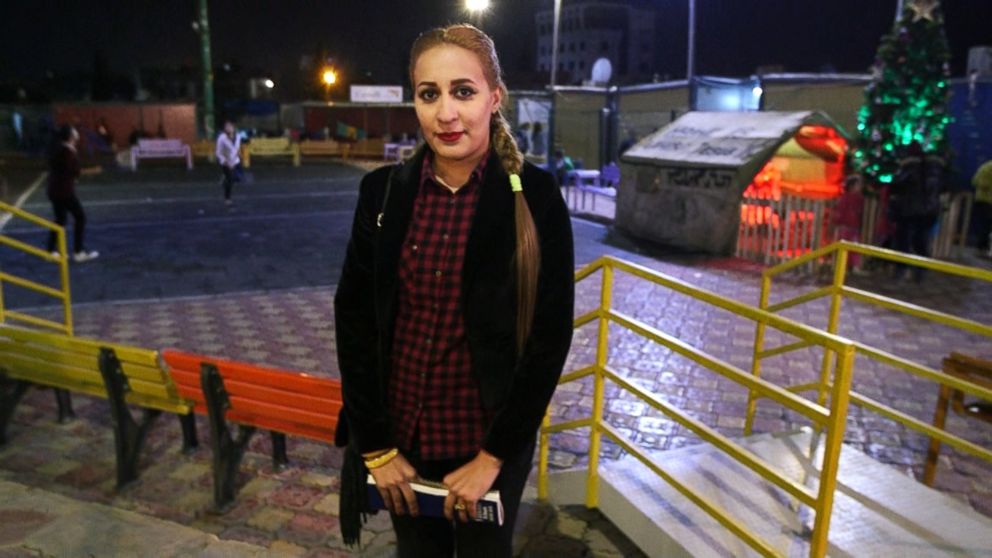
"In my life, I change a lot of places to be safe, to live. I change a lot of places. But my child or my children, I don't want to live like this. … I want just to live safe, a normal life, you know? Just to live a normal life." –- Ranya Khaleel Majeed
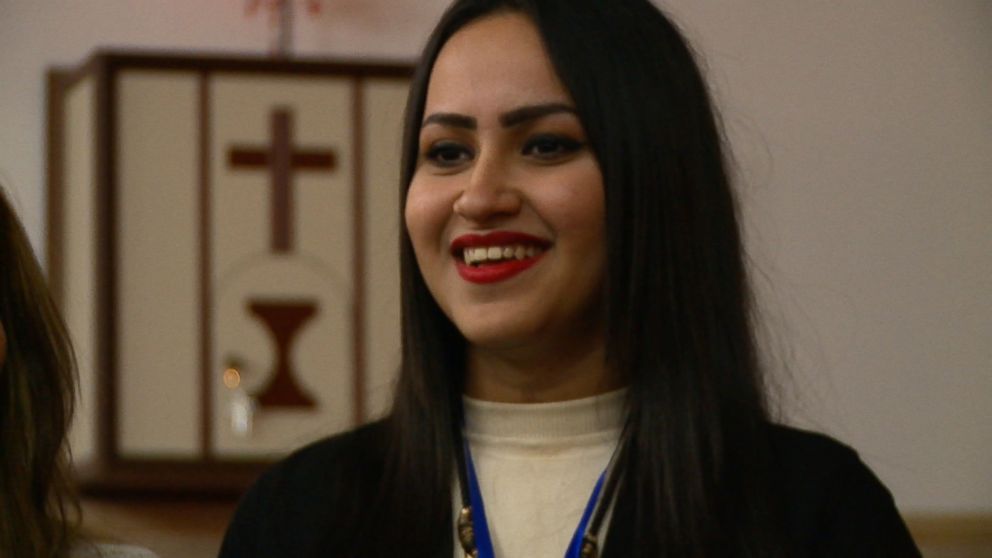
"We feel peace. We are happy. Some people are worried. … This with time will be okay." –- Rita Khaleel Majeed
In 2006, sisters Ranya and Rita Khaleel Majeed first left Baghdad, where they were born, after war broke out and ended up in Qaraqosh.
One of the reasons they fled Qaraqosh in 2014 was because they heard ISIS raped women and children and turned them into sex slaves.
"We heard about the Yazidi womens and what the ISIS do with them," Rita Khaleel Majeed, 19, told "20/20." "So we are so scared [that they would] do the same thing with us."
Ranya Khaleel Majeed said she left behind family photos and some of her clothes because she thought she would one day return to Qaraqosh.
"But this thing never happened," Ranya Khaleel Majeed, 22, told "20/20."
Before leaving Qaraqosh, Ranya Khaleel Majeed worked in a hospital as a laboratory assistant. Rita Khaleel Majeed loves makeup and fashion, and she dreams of becoming a journalist or an actress.
Ranya and Rita Khaleel Majeed left Erbil for Slovakia with their family of eight and were ready for a fresh chapter in their futures.
"We were so excited to [see] the ice," Ranya Khaleel Majeed said of the cold weather in Slovakia.
"[And we were excited] to make a snowman," Rita Khaleel Majeed said. "It is simple dreams, but it's beautiful for us."




